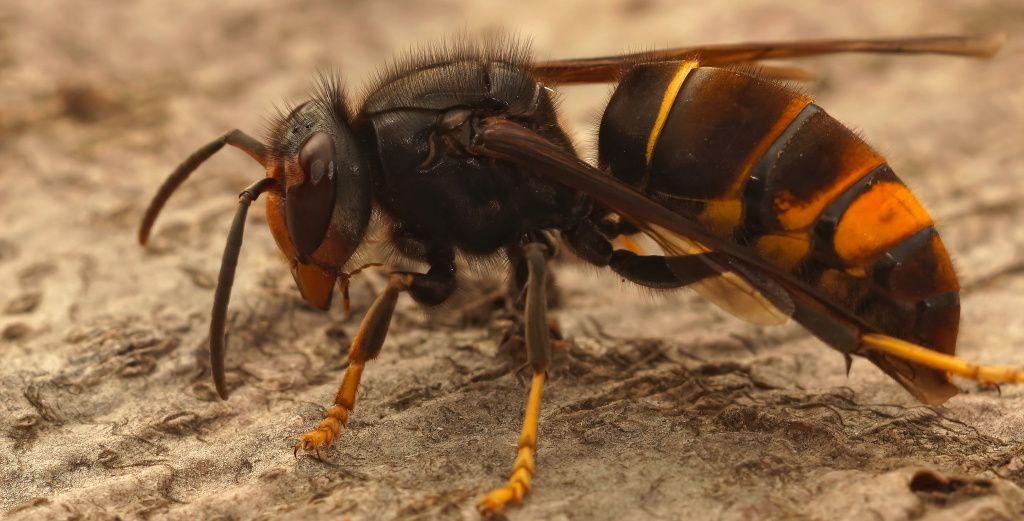The UK’s buzzing ecosystem is facing a new and formidable adversary: the Asian hornet (Vespa velutina). These invasive insects, originally from Southeast Asia, have made their way to our shores, posing a serious threat to our local wildlife and even human safety.
In this blog post, we will delve into the invasion of Asian hornets in the UK, their impact, and what we can do to address this growing concern.
Understanding Asian Hornets
Asian hornets are not your typical garden variety wasps. They are larger, measuring around 2.5 cm in length, with a dark velvety appearance and distinctive orange-yellow legs.
Their formidable appearance is matched by their predatory behaviour. These hornets are known for their appetite for bees and other pollinators, making them a significant menace to our local ecosystem.
The Arrival in the UK
The first recorded sighting of Asian hornets in the UK dates back to 2016 on the Channel Island of Jersey.
Since then, these invasive insects have been steadily making their way across the UK. They are believed to have arrived via imported goods, such as plant pots and wood from Asia.
Impact on Local Ecosystem
The Asian hornet’s voracious appetite for bees and other pollinators has raised concerns among ecologists and beekeepers alike. Bees are crucial to our food production and the overall health of our environment.
The Asian hornet’s predation can disrupt the delicate balance of our ecosystem, leading to potentially devastating consequences.
Dangers to Humans
While Asian hornets are primarily a threat to our local wildlife, they can pose risks to humans as well. Their stings are known to be painful and can cause allergic reactions in some individuals.
It’s essential to be cautious and informed about these insects, especially if you come across them.
Efforts to Control Asian Hornets
Authorities and organisations across the UK have been actively working to control and manage the Asian hornet population. Nest destruction and monitoring programs have been put in place to curb their spread.
Citizen-driven initiatives and public involvement in reporting sightings have also played a vital role in these efforts.
How to Identify Asian Hornets
Identifying Asian hornets is crucial in preventing their further spread. They can be distinguished from other similar-looking insects by their size, dark velvety appearance, and distinctive yellow legs.
Being able to identify them accurately can help in reporting and controlling their presence.
What Can We Do?
The invasion of Asian hornets in the UK is a collective concern that requires collective action. Here’s how you can make a difference:
Stay Informed:
Keep yourself informed about the Asian hornet and its impact on our ecosystem.
Report Sightings:
If you suspect you’ve spotted an Asian hornet, report it to your local authorities or beekeeping association.
Support Beekeepers:
Local beekeepers play a vital role in pollinator conservation. Support them by purchasing local honey and beeswax products.
Spread Awareness:
Share this information with friends and family to raise awareness about the Asian hornet invasion.
Conclusion
In conclusion, the Asian hornet invasion in the UK is a significant concern for our ecosystem and poses risks to humans. By staying informed and taking proactive measures, we can work together to mitigate this threat and protect our local environment. Let’s be vigilant, report sightings, and support initiatives aimed at controlling these invasive insects.
Contact A Local Pest Control Expert
Are you having trouble with Asian Hornets or any other pests invading your property? You can contact your local pest control experts at Sykes Pest Control

